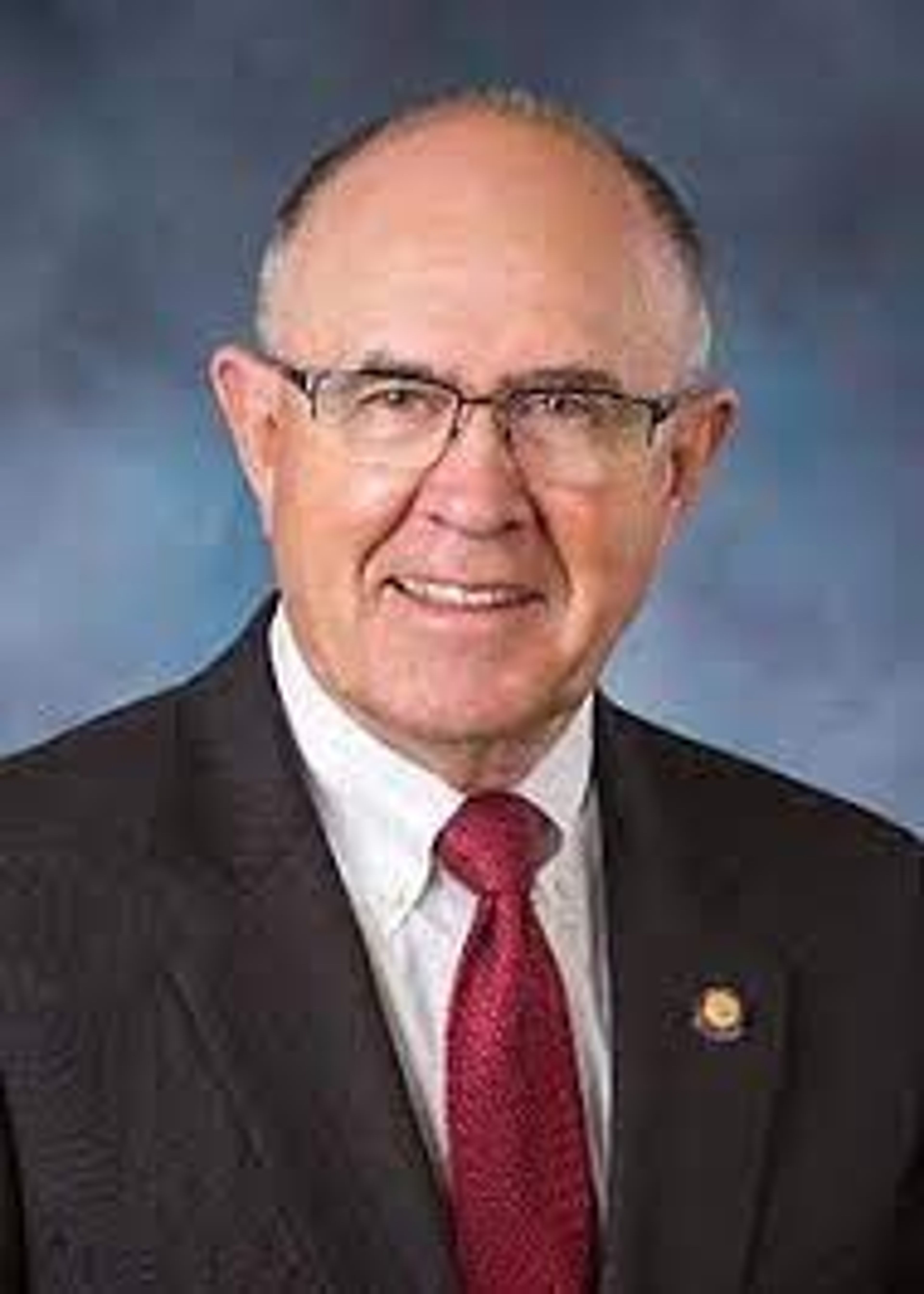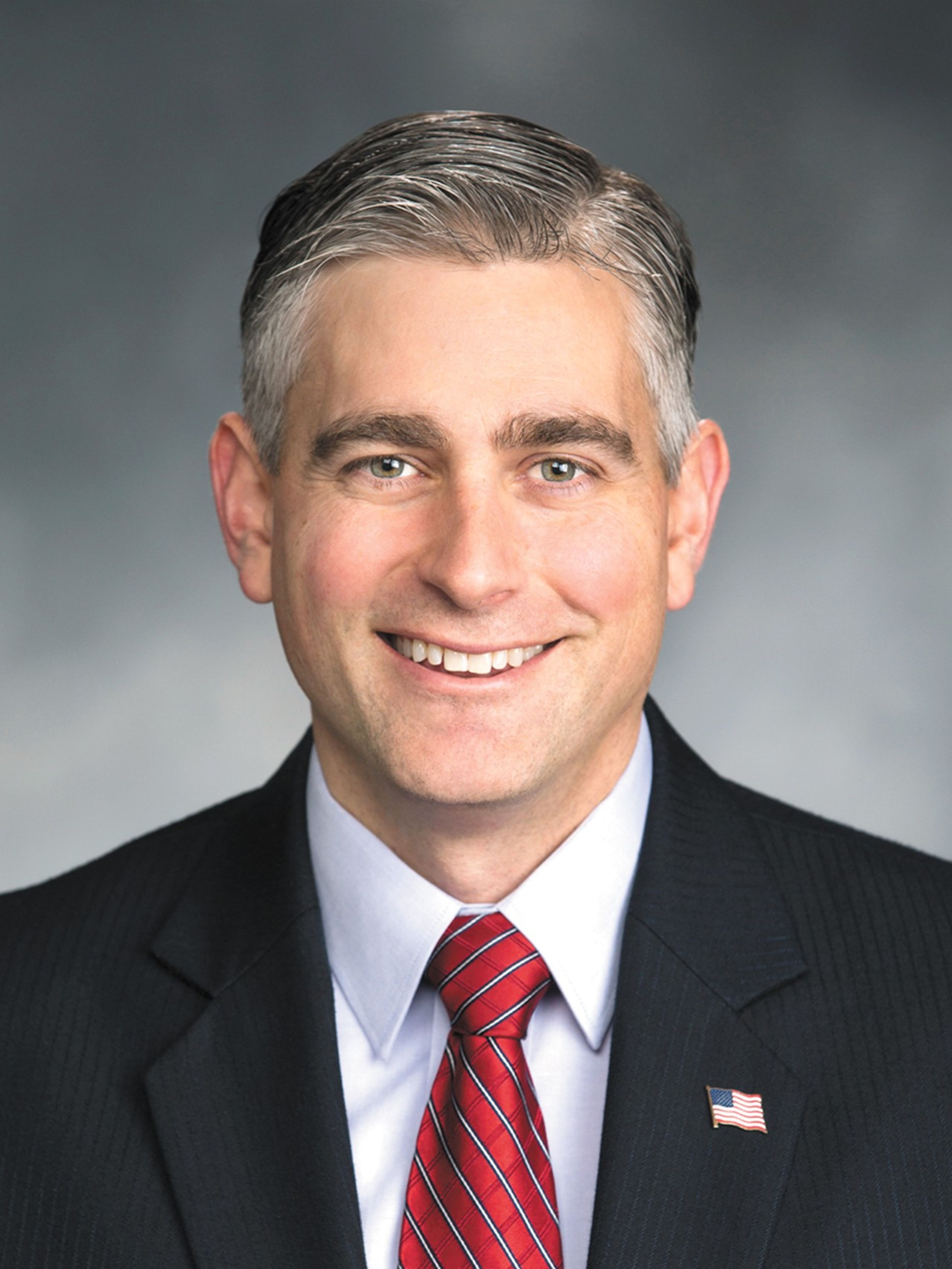Senate leader’s loss part of shift at Capitol
Winder’s setback typifies Idaho’s lurch to the right
The leader of Idaho’s Senate lost his bid for a ninth term in office Tuesday — a major upset that became the leading edge of a strong night for the far-right as they vie for control of the state’s Republican Party.
Senate Pro Tem Chuck Winder, R-Boise, narrowly lost to his conservative challenger, Josh Keyser, who secured 52.3% of the votes, according to unofficial results from Ada County.
The longtime senator’s loss followed a contentious legislative session this year, when Winder faced harsh backlash from conservative factions within his party.
Keyser, who was backed by the state’s far-right contingent, was “very grateful and humbled” by the result, he told the Idaho Statesman.
He said Winder is a “tremendous person” and that he wishes “him well in retirement.”
Winder, a mainstay of the Senate for 16 years, congratulated Keyser on his win. He told the Statesman by text that it was a privilege to represent his constituents.
FAR RIGHT PICKS UP 5 HOUSE, 2 SENATE SEATS
The night’s consequences tested the competing platforms within the state GOP before the will of partisan voters, who are making choices about the direction the party takes.
Hard-line conservatives this year again pushed for bills targeting social issues. That included new laws restricting transgender people’s access to gender-affirming care and making libraries liable for providing “harmful” materials to children.
Winder’s loss to a more conservative candidate marked one of several wins for the far-right, who picked up five House and two Senate seats based on unofficial results.
In District 8 — an expansive district that covers covers Valley, Boise, Custer and Elmore counties — all three more moderate incumbents lost their primary elections: Reps. Megan Blanksma and Matthew Bundy and Sen. Geoff Schroeder, who was defeated by former Sen. Christy Zito.
In Canyon County, hard-line conservatives scored major victories: Rep. Julie Yamamoto, R-Caldwell, who chaired the House Education Committee and opposed school voucher programs, lost to challenger Kent Marmon, who was endorsed by the far-right Idaho Freedom political action committee.
Incumbent Rep. Kenny Wroten, R-Nampa, lost his House seat to the more conservative Steve Tanner.
One exception is Sen. Chris Trakel’s race; the first-term senator was defeated by more moderate Camille Blaylock, a candidate endorsed by Gov. Brad Little.
Far-right incumbents in the county fended off challengers, too: Sen. Brian Lenney, R-Nampa, a member of the Idaho Freedom Caucus, defeated former Sen. Jeff Agenbroad for the second time in two years, while Sen. Tammy Nichols, R-Middleton, handily defeated a more moderate conservative, Lori Bishop.
But more establishment candidates also scored a few wins.
North Idaho voters backed former Sen. Jim Woodward over far-right incumbent Sen. Scott Herndon, R-Sagle, in one of the most expensive races of the cycle that drew nearly $164,000 in donations.
Rep. Jacyn Gallagher, R-Weiser, who advanced legislation weakening public health laws, also lost her seat to John Shirts, a candidate more aligned with Idaho’s establishment Republicans.
Blackfoot Rep. Julianne Young, who sponsored a bill that targeted transgender or nonbinary people, in unofficial results lost by 10 votes against her challenger.
House leadership remained unscathed. Speaker Mike Moyle, R-Star, the only House Republican leader to face a GOP challenger and one of the longest-serving lawmakers, secured 54.6% of the votes, easily fending off repeat challenger Rachel Hazelip.
Political action committees and other outside groups spent heavily to influence legislative primary races this year, particularly those who lobby for school voucher programs.
One Texas-based group, the American Federation for Children, spent more than $400,000 this cycle. The organization helped topple two of its targeted candidates — Wroten and Rep. Melissa Durrant, R-Kuna — and defend Rep. Wendy Horman, one of the Legislature’s biggest school voucher advocates, for her seat in Idaho Falls.
The choices on Republican and Democratic ballots determined which candidates became the party nominees for November, when the parties contend for seats.
In many districts in Idaho, where Republicans outnumber Democrats by more than four to one, the Republican nominee is all but certain to win in November.
“I think we’re fighting for the heart and soul of the party and the heart and soul of Idaho,” Republican Party Chair Dorothy Moon said at a speech at the Riverside Hotel in Garden City.
NEW LAWMAKERS TO REPRESENT BOISE
Tuesday’s results come on the heels of a tumultuous legislative session, when fights within the GOP caucus boiled over and resulted in the ouster of Blanksma from her House majority leader position.
The Idaho Senate took a rightward turn after the 2022 primary elections, when numerous far-right candidates beat out more establishment candidates for their party’s nomination.
Dozens of seats in the Legislature were filled with new lawmakers, including nearly half of the Senate. Democrats also lost a seat in the House in November that year, cutting their already slim minority down to 11 of 70 seats.
The Idaho Legislature will have a little less turnover this year, with a smaller number of lawmakers having vacated their seats than in 2022: Seven House seats and one Senate seat are certain to have new lawmakers.
Unofficial results showed at least another six GOP incumbents lost. In Boise, three currently Democratic House seats will have a new lawmaker come next year, including a competitive four-way race for West Boise’s District 16 House seat B, formerly Colin Nash’s seat.
Nash resigned following his election to the Boise City Council. Rep. Todd Achilles, who was appointed to the role by the governor in February, won the Democratic nomination Tuesday.
If elected in November, he said he would work to partner with Republicans and “collaborate and get things across the line” on school funding and abortion, he told the Statesman.
Monica Church won her uncontested bid for the Democratic House primary in the North End and downtown Boise’s District 19, after House Assistant Minority Leader Lauren Necochea chose not to run again to devote her time to chairing the Idaho Democratic Party.
Church is the descendant of a prominent political dynasty in Idaho: Her grandparents were former governor and U.S. Interior Secretary Cecil Andrus and former U.S. Sen. Frank Church.
In the Boise Bench, Megan Egbert also ran uncontested for the District 17 House position B seat and will advance to the November general election. Sue Chew previously held the seat and was the longest-serving Democrat in the Idaho Capitol. She died of pancreatic cancer in April.
Late on Tuesday night, some GOP supporters cheered and gleefully pounded tables as they huddled over phones and laptop screens to watch election night results trickle in.
Dustin Hurst, who runs the far-right Idaho Freedom PAC, and Maria Nate, who leads the Idaho Freedom Caucus, whooped after Winder’s demise was confirmed by Ada County’s tallies.
The Freedom PAC spent more than $17,000 on GOP races this year.
Early on Wednesday morning, Hurst posted on X, formerly Twitter, that he has long believed grassroot conservatives would soon topple Idaho’s political establishment, which “is dead but doesn’t know it yet.”
“After last night, I still believe both to be true,” he said.
Samuel O’Neal contributed reporting.








